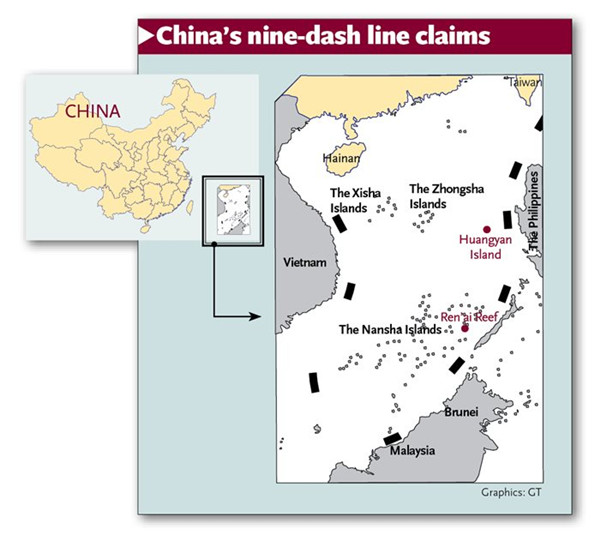The Permanent Court of Arbitration, an international organization based in The Hague, the Netherlands, is set to release on Tuesday its award in the Philippines-initiated case involving territory in the South China Sea which both Manila and Beijing claim. China repeatedly denied the legitimacy of the case, which was filed unilaterally by the Philippines, and has said it would not participate in or accept the result of the case.
Permanent organization
The Permanent Court of Arbitration (PCA) is an intergovernmental organization that was established in 1899 by the first Hague Peace Conference in The Hague, Netherlands. It is the oldest international conflict resolution organization in the world.
The PCA is a permanent organization and holds temporary tribunals to resolve disputes among states, intergovernmental organizations or private parties.

According to the PCA website, the International Bureau maintains both a list of PCA Members of the Court who are nominated by PCA Member States and are available to act as arbitrators in PCA-administered proceedings, as well as specialized panels of arbitrators and experts for environmental disputes and space-related disputes. However, the Secretary-General and parties in PCA proceedings are not obliged to select arbitrators from this list and are free to exercise their discretion in selecting the individuals best suited to the case at hand.
Apart from the South China Sea dispute, the PCA has mediated in two other cases concerning China, according to its official website. The first one, in which the Radio Corporation of America accused China of violating an agreement with it by entering into a similar agreement with another radio company, the PCA held in 1935 that China was not in violation of the terms of agreement as it was not exclusive. Another case, which involves three Chinese companies and the Mongolian government, is still ongoing.
Five arbitrators sat on the arbitral tribunal on the South China Sea, Judge Thomas A. Mensah, Judge Jean-Pierre Cot, Judge Stanislaw Pawlak, Professor Alfred H. Soons and Judge Rüdiger Wolfrum. Judge Rüdiger Wolfrum was appointed by the Philippines, and the other four were appointed by the then president of the International Tribunal for the Law of the Sea Shunji Yanai because China did not agree to the arbitration.
Illegitimate arbitration
The crux of the China-Philippines dispute in the South China Sea is the Philippines' occupation of islands and reefs in the Nansha Islands archipelago which China regards as its own, a state of affairs which China argues is in violation of the UN Charter and the basic norms governing international relations. With the evolution of the new regime of the law of the sea, maritime delimitation disputes have also arisen.
On January 22, 2013, the Republic of the Philippines instituted arbitral proceedings against the People's Republic of China under Annex VII to the United Nations Convention on the Law of the Sea (UNCLOS) "with respect to the dispute with China over the maritime jurisdiction of the Philippines in the West Philippine Sea." Philippine president Benigno Aquino III signed an administrative order renaming the South China Sea the "West Philippine Sea" in September 2012.
An article published by the U.S.-based Center for Strategic and International Studies wrote that the Philippines "is seeking a ruling that declares that claims in the South China Sea must comport with UNCLOS, which would invalidate China's nine-dash line; classify maritime features occupied by China as rocks, low tide elevations, or submerged banks, but not islands; and declare the Philippines' right to operate inside of its EEZ (exclusive economic zone) and continental shelf as outlined by UNCLOS without Chinese harassment."
On February 19, 2013, China presented a document to the Philippines in which it described "the position of China on the South China Sea issues," rejected the arbitration and called on the Philippines to resolve the dispute through bilateral negotiations. China argues that the Arbitral Tribunal lacks jurisdiction in the case.


















































